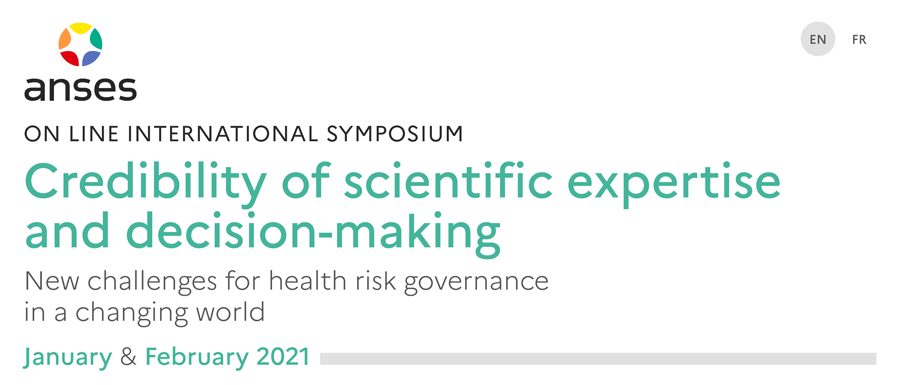 |
|
|
| |
| |
 |
Paul de Brem
Scientific seminar host
Paul de Brem is a professional anchorman specialised in scientific, technical, space and business events. During the last 20 years, he has hosted more than 600 symposiums and debates both in french and english for various clients such as CNRS, Procter&Gamble, Région Ile-de-France, Inserm, EDF, Sanofi, Institut Pasteur, CNES, ministère de la Recherche, etc. A year ago, he has hosted a two-day ministerial conference in english dedicated to higher education with 60 ministers from 4 continents. He has also been in charge of the World Chemistry Congress attended by 2500 people. He leads communication courses for professionals : Media-training, Powerful PowerPoint, Writing for the Internet, etc., for clients such as Orange, Banque de France, CNES, ENA (Ecole nationale d'administration), Inserm, etc. He has been leading courses in scientific journalism at Sorbonne University (39th in the World Shanghai Academic Ranking), in Paris, for 7 years. Previously, as a science editor for television and printed media, Paul de Brem actively collaborated with the LCI news channel and the weekly news Le Journal du dimanche, L'Express, etc.
Leran more at www.animation-colloque.fr
|
|
| |
First afternoon - Wednesday 20th January |
| |
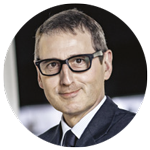 |
Bruno Maquart
President of Universcience
Bruno Maquart is an agricultural engineering graduate of the National Agronomic Institute Paris-Grignon, as well as a former student of the École Nationale d'Administration and general inspector of social affairs. He works in two areas of public action: culture and social affairs. He was Managing Director of the Centre Pompidou from 2001 to 2007; then became Head of Agence France-Museums, in charge of the Louvre Abu Dhabi, from 2007 to 2010 before becoming Chief of Staff to Marisol Touraine, Minister of Social Affairs, Health and Women's Rights, in 2013. He has been President of Universcience since 1 July 2015. He has also been Vice-President of ECSITE, the European Network of Science Centres and Museums, since last June.
|
|
| |
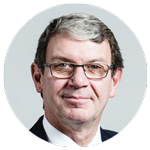 |
Roger Genet
Director general of Anses
Roger Genet holds a doctorate in enzymology and protein engineering, and an accreditation to conduct research in science from the University of Paris-Sud Orsay. He has devoted a large part of his career to scientific research within the French Alternative Energies and Atomic Energy Commission (CEA), which he joined in 1981, as well as teaching as a professor at the National Institute for Nuclear Sciences and Technology (INSTN). Roger Genet is the author of around thirty scientific publications and co-author of six patents for inventions. In 2005, he joined the office of the Minister of Research as an advisor on life sciences, health and bioethics, before returning to the CEA in 2007, as Deputy Director of Life Sciences and Director of the Fontenay-aux-Roses research centre, where he was in charge of the site's conversion to health technologies.
In 2009, Roger Genet was appointed head of Cemagref which became, under his leadership, the National Research Institute of Science and Technology for Environment and Agriculture (Irstea) and where he was the organisation's first President. He also served as President of the Aquaref consortium, the national reference laboratory for monitoring aquatic environments, between 2009 and 2011. Together with the CEO of Ifremer, he drafted the "National Charter for Expertise" that was adopted by French research operators in 2011. An advocate of the cooperative and integrative approach, he proposed the founding of the National Alliance for Environmental Research (AllEnvi), which brings together all the French stakeholders in research on water, food and territories, and was its first president from 2010 to 2012. He was also appointed Chairman of the Scientific Board of the French Environment and Energy Management Agency (ADEME) in 2012.
In March 2012, he was appointed Director General of Research and Innovation at the Ministry of National Education, Higher Education and Research, before becoming Director General of ANSES in May 2016.
|
|
| |
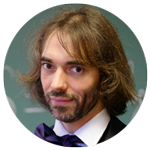 |
Cédric Villani
Member of National Assembly, President of the Parliamentary
Office for scientific and technological assessment
Cédric Villani, Chair of the French Parliamentary Office for the Evaluation of Scientific and Technological Choices (OPECST). Cédric Villani is a French mathematician, holder of the 2010 Fields Medal and winner of the 2014 Doob Prize. A professor at the University of Lyon, he was a visiting professor at the Universities of Berkeley, Princeton and GeorgiaTech, then Director of the Institut Henri Poincaré from 2009 to 2017, from which he resigned when he was elected as a Member of Parliament from Essonne. At the French National Assembly, he sits on the Laws Committee and chairs the Parliamentary Office for the Evaluation of Scientific and Technological Choices. Interested in the relationship between science and society, Cédric Villani is a member of both the Academy of Sciences and the Pontifical Academy of Sciences. He has given lectures in more than 70 countries and has published several books, including the best-seller "Birth of a Theorem” which has been translated into 12 languages. He has been a member of numerous scientific committees, both for public institutions (including the European Commission) and private institutions (scientific committees for Orange, EDF, Atos and BCG). Cédric Villani is an alumnus of the École nationale supérieure - Ulm, with a doctorate in mathematics and habilitation to direct research. He has honorary doctorates from several universities.
|
|
| |
 |
Sheila Jasanoff
Harvard Kennedy School
Sheila Jasanoff is Pforzheimer Professor of Science and Technology Studies at the Harvard Kennedy School. A pioneer in her field, she has authored more than 130 articles and chapters and is author or editor of more than 15 books, including The Fifth Branch, Science at the Bar, Designs on Nature, The Ethics of Invention, and Can Science Make Sense of Life? Her work explores the role of science and technology in the law, politics, and policy of modern democracies. She founded and directs the STS Program at Harvard; previously, she was founding chair of the STS Department at Cornell. She has held distinguished visiting appointments at leading universities in Europe, Asia, Australia, and the US. Jasanoff served on the AAAS Board of Directors and as President of the Society for Social Studies of Science. She is a member of the Council on Foreign Relations. Her honors include the SSRC’s Hirschman prize, the Humboldt Foundation’s Reimar-Lüst award, a Guggenheim Fellowship, an Ehrenkreuz from the Government of Austria, and foreign memberships in the British Academy and the Royal Danish Academy. She holds AB, JD, and PhD degrees from Harvard, and honorary doctorates from the Universities of Twente and Liège.
|
|
| |
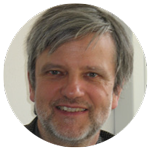 |
Ortwin Renn
IASS Potsdam
Ortwin Renn is scientific director at the International Institute for Advanced Sustainability Studies (IASS) in Potsdam (Germany) and professor for environmental sociology and technology assessment at the University of Stuttgart. He also directs the non-profit company DIALOGIK, a research institute for the investigation of communication and participation processes. Renn is Adjunct Professor for “Integrated Risk Analysis” at Stavanger University (Norway), Honorary Professor at the Technical University Munich and Affiliate Professor for “Risk Governance” at Beijing Normal University. His research interests include risk governance (analysis perception, communication), stakeholder and public involvement in environmental decision making, transformation processes in economics, politics and society and sustainable development.
Ortwin Renn has a doctoral degree in social psychology from the University of Cologne. His career includes teaching and research positions at Clark University (Worcester, USA), the Swiss Institute of Technology (Zuerich) and the Center of Technology Assessment (Stuttgart). His honours include the National Cross of Merit Order, honorary doctorates from the Swiss Institute of Technology and the Midsweden University, the “Outstanding Research Award” of the Society for Integrated Disaster and Risk Management (IDRiM) and the “Distinguished Achievement Award” of the Society for Risk Analysis (SRA). In 2019, he was awarded the Order of Merit from the State of Baden-Württemberg for special achievements in scientific policy advice.
Renn is a member of the German National Academy of Sciences “Leopoldina”, the Berlin-Brandenburg Academy of Sciences (Berlin), and of the Board of Directors of the German National Academy of Technology and Engineering (Acatech). He belongs to numerous scientific and academic advisory councils. From 2006 to 2012, he headed the Sustainability Advisory Council of the State of Baden-Württemberg and was a member of the Ethics Commission "The Future of Energy" appointed by Chancellor Angela Merkel. Until 2014, he served on the "Science and Technology Advisory Council", an advisory body for EU Commission President Jose Manuel Barroso. Since 2019, he has been a member of the Federal Government's "Climate Change" research platform and heads the Sustainability Platform of the State of Brandenburg. Renn has published more than 30 monographs and over 250 peer reviewed articles. His most prominent English publication is the book “Risk Governance. Coping with Uncertainty in a Complex World (London: Earthscan 2008).
|
|
| |
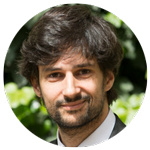 |
Daniel Agacinski
France Stratégie
Daniel Agacinski is a Professor of Philosophy and former student of the École Normale Supérieure. He worked for France Stratégie from 2015 to 2020. Over the past few years, among other things, he has written the reports "Mediation Impossible? On mediations between citizens and administration" (2019) and "Expertise and democracy: coping with mistrust" (2018). Within the Society and Social Policies Department, he monitored educational and institutional issues, co-chaired the cross-cutting seminar on the consideration of sustainability issues in public policies, and organised the participatory component of the evaluation of the national poverty reduction strategy.
He previously taught philosophy (at the University of Paris I between 2007 and 2009, and at the University of Toulouse II between 2009 and 2012) and participated in teacher training at the Versailles education authority's ESPE school in 2014. From 2012 to 2014 he was an advisor, first to the Minister responsible for people with disabilities and promotion of social inclusion, then to the Minister of National Education.
Since November 2020, he has been General Delegate for Mediation at the Public Defender of Rights.
|
|
|
Second afternoon - Thursday 21th January |
| |
 |
Stephen Hilgartner
Cornell University
Stephen Hilgartner is Professor of Science & Technology Studies at Cornell University. His research examines the social dimensions and politics of contemporary and emerging science and technology, especially in the life sciences. Hilgartner’s most recent monograph, Reordering Life: Knowledge and Control in the Genomics Revolution (MIT Press 2017), examines how quasi-legal “knowledge-control regimes” took shape during the Human Genome Project. Hilgartner also co-edited two recent collections: the Handbook of Genomics, Health and Society (Routledge 2018) and Science & Democracy: Making Knowledge and Making Power in the Biosciences and Beyond (Routledge 2015). His book Science on Stage: Expert Advice as Public Drama won the Society for Social Studies of Science’s Rachel Carson Prize. He is currently completing a project on the politics of making knowledge about risk. Since May 2020, he has been co-leading a comparative study of countries’ responses to the Covid pandemic. Hilgartner is a Fellow of the American Association for the Advancement of Science.
|
|
| |
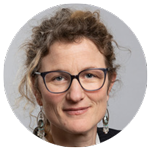 |
Catherine Bourgain
Inserm - Cermes3
Catherine Bourgain is a research director at the French National Institute for Health and Medical Research (INSERM) and the director of the “Centre de Recherche Médecine, Sciences, Santé, Santé Mentale, Société” (Cermes3 ; CNRS, EHESS, Inserm, Univ. Paris). Trained in population genetics, statistics and epidemiology, she has worked for ten years in genetic epidemiology, developing statistical methods for the genetic characterization of complex diseases. In 2013, she joined the Cermes3 and started a series of collective and multidisciplinary social science studies on high-throughput genomics in the context of care, on the epistemology and practices of contemporary human genetics research, with an interest in models and on healthcare data. Since the beginning of the Covid-19 pandemic, she has been involved in a collective research project on modeling issues in the pandemic, with Luc Berlivet (CNRS, Cermes3) et Henri Boullier (CNRS, Irisso).
|
|
| |
 |
Daniel Benamouzig
CNRS - Center for the sociology of organisations
Daniel Benamouzig is a Research Professor of Sociology at Sciences Po and CNRS. He is the Director of the “Chaire Santé” in Sciences Po and serves in the Centre de Sociologie des Organisations and in the School of Public Affairs (Sciences Po). His research is on economic knowledge, expertise, institutional regulation and public policy in the field of health.
https://www.sciencespo.fr/cso/en/researcher/Daniel%20Benamouzig/1048.html |
|
| |
Break out session - Tuesday 26th January |
| |
 |
Gérard Lasfargues - Chairman
Anses
Gérard Lasfargues (MD, PhD) is currently the Managing Director General for “Science for Expertise” Division in ANSES as well as a university hospital physician and professor of medicine and occupational health.
Education and professional career: After studying medicine in Paris, Dr. Lasfargues worked as a physician and professor at the University Hospital of Tours. He is now working in the Institue of occupational health at the University of Paris-Est Créteil
While training in occupational health research, he specialized in industrial toxicology in the Toxicology unit of the Louvain Catholic University in Belgium, headed by Professor Lauwerys.
For the last 20 years, Dr. Lasfargues has directed clinical, teaching, research and assessment work in the occupational and public health fields. Beginning in 2007, he set up and directed the Department of Environmental and Occupational Health Assessment of the French Agency for Environmental and Occupational Health Safety (AFSSET), before being appointed in 2009 as the Deputy Director General for Scientific Affairs of AFSSET, then of ANSES, and since August 2017 as Managing Director General for “Science for Expertise” Division.
Publications: Dr. Lasfargues is the author of many French and international papers, articles and other publications in the various occupational health fields. The majority of his work deals with the respiratory toxicology, epidemiology and the assessment of the major occupational risks and work-related diseases. |
|
| |
 |
Thomas Burke
John Hopkins University
Thomas A. Burke, PhD, MPH, is the Jacob I. and Irene B. Fabrikant Professor and Chair in Health Risk and Society at Johns Hopkins University Bloomberg School of Public Health, Department of Health Policy and Management with a joint appointment in the Department of Environmental Health ad Engineering. He is also Director of the Johns Hopkins Risk Sciences and Public Policy Institute. Dr. Burke was nominated by President Barack Obama to serve as EPA Assistant Administrator for the Office of Research and Development. From January 2015 until January 2017 Dr. Burke was the EPA Science Advisor and Deputy Assistant Administrator for Research and Development. Before joining the University faculty, Dr. Burke was Deputy Commissioner of Health for the State of New Jersey and Director of Science and Research for the New Jersey Department of Environmental Protection. He was Chair of the National Academy of Sciences Committee on Improving Risk Analysis that produced the report Science and Decisions, and currently serves as Chair of the Environmental Health Matters Initiative of the National Academies of Sciences, Engineering and Medicine. Dr. Burke received his BS from St. Peter's College, his MPH from the University of Texas and his PhD in epidemiology from the University of Pennsylvania. |
|
| |
 |
Myriam Merad
CNRS Research Director - Paris Dauphine University (UMR LAMSADE)
Myriam Merad is primarily interested in the link between Science and Decision and mainly in expertise framing, regulatory and policy analysis and participative/deliberative decision analysis.
Myriam MERAD is a Civil engineer (graduated in 1997, Ecole Nationale des Travaux Publics d’Alger- Algeria). She obtained a Master of Business Administration (MBA) (ISG Alger and IEFSI - groupe EDHEC France) in 1999, a Research Master (DEA) in scientific methods in management science (operational research and decision aid) in 2000, a PhD in Management Sciences (Decision-aiding) in 2003 (Dauphine university, Paris) and a Habilitation - Habilitation à Diriger les Recherches - (HDR is in France a high-level specialization university-granted and higher education-sanctioned degree obtained post PhD needed to access the rank of Professeur des Universites) in 2011. Her fields of expertise are in risk, resilience and sustainability governance and decision analysis in safety, security and health- environment.
Myriam MERAD began her career in Algeria in the field of parasismic engineering and in the civil engineering in 1996. She has joined INERIS (National French Institute for Environment and Industrial Risks) in 1999. From 1999 to 2003, during her PhD, she was in charge of developing methodologies to prevent risks of subsidence and collapse due to post-mining activities (ex. Mining Risk Prevention Plans) at the Soil and Sub-soil Division. In 2003, she joined the Accidental Risks Division of the Institute. Between 2003 and 2008, she contributed to European Union and French research programmes in risk governance (e.g. Trustnet-in-Action, STARC, SAPHIR, French Research Programmes SOCECO2 ...) and to research programmes in the field of Technological Risk Prevention (e.g. Acceptrisk). The general objectives of these programmes where, in one hand to contribute to a more inclusive risk governance in France and, in another hand, to improve the ongoing practices in risk prevention by developing methodologies using expert-judgement and decision aiding tools especially applied to support the land-use planning policies and decision around Seveso plants. These research projects and programs were action-research to support Ministry of Environment in framing new regulations and decision criteria in the aftermath of the Toulouse ammonium nitrate disaster (2001).
From 2005-2008, she was the head of “Societal Risk Management” and “Governance, human and Organizational factors” research and expert groups at INERIS, managing successively 20 people (engineers, PhD student, technicians, trainee, secretary).
In 2009, she was nominated as a sustainable development delegate at INERIS where she was asked to define the policy, the strategy and the sustainable development action plan for the Institute. In October 2010, she chaired for the French Ministry of Environment at a national level a working group on sustainable development governance within public organizations. Four national guidelines were published in March 2013. She has been nominated in April 2014 to become a lead in Human, organizational and societal factors at Chronic Risks Division where she has contributed to the National and Regional Air Pollution Risk Prevention Plants.
In October 2016, Myriam Merad was nominated at the French National Center for Scientific Research (CNRS) as a Research Director/Professor. Since her nomination, she chaired the ANSES (French Agency for Food, Environmental and Occupational Health & Safety) working group on integrated approach to food safety (biological and chemical hazards) (2017-2020) and coordinates different projects on different types of risks: flooding, nanotechnology, high threshold Seveso facility, radiological risks, ... She supports since 2019 IRSN (French national expert institute for nuclear safety and radiological protection) in the field of multi-criteria and multi-stakeholders’ expertise and decision-aiding.
Merad is also active in many other risk-related institutes and scientific societies: She was a member of the Scientific and Technical Committee of IRSTEA (former CEMAGREF, the French institute, the national institute of science and technology for environment and agriculture and current INRAE) from 2009 to 2017 and chairman or co-chairman of different expert working groups within the Institut de Maîtrise des Risques (IMdR, the French engineer association in risk, safety and realiability management), AFPCN (French association for the prevention of natural catastrophes) and “Association Française des Ingénieurs et Techniciens de l’Environnement” (AFITE, the French environment engineers and technicians association). She is a Councilor of the SRA (Society for Risk Analysis) and the President of the Scientific Committee of AFPCN. She is also a member of the editorial board of Springer’s Environment, systems & Decisions journal (formerly The Environmentalist). In 2020 she was nominated as Member of Advisory Council for the Prevention of Major Natural Risks (COPRNM), National expert to the European Science and Technology Advisory Group (E-STAG) to UNDRR and as a Consultation Garantor at the National Commission for Public Debate (CNDP).
She is the author of six books (in French, on decision aiding, expertise and risk assessment and management; concertation and mediation in environment, managing the organizational change of sustainable development, 1 in English) ; she has contributed to different national guidelines and legislations in the field of safety and sustainability; has written more than 50 papers in scientific journals and in conferences, and has communicated in 100 conferences and seminars. She has contributed to organize more than 40 technical and scientific seminars, conferences and meetings. |
|
| |
 |
Richard Brown
WHO
Dr Richard Brown, is a Technical Officer with the World Health Organization (WHO), working in the Chemical Safety and Health Unit in WHO Headquarters in Geneva, Switzerland. His professional experience is in toxicology, pesticide regulation and chemical risk assessment. His current work involves overseeing the chemical risk assessment activities of the WHO International Programme on Chemical Safety and providing the Secretariat to the WHO Chemical Risk Assessment Network.
|
|
| |
 |
David Demortain - Chairman
LISIS
David Demortainis a sociologist, INRAE Research Director, and Director of the Interdisciplinary Laboratory on Science and Innovation in Society (LISIS). He conducts research on risk assessment and regulatory science, the development of its methods and concepts, and their effects on the regulation of chemicals. He is the author of Scientists and the Regulation of Risk (Edward Elgar Publishing, 2011), and most recently The Science of Bureaucracy. Risk Decision-Making and the Environmental Protection Agency (MIT Press, 2020). He coordinated the INNOX research programme on computational modelling methods in public action.
|
|
| |
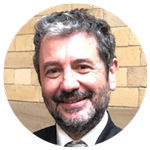 |
Frédéric Bois
CERTARA
Dr. Bois joined CERTARA in 2019. He leads a team of scientists developing advanced modelling and statistical inference methods in support of Simcyp’s activities. He was previously Research Director at the French National Institute for Industrial Environment and Risks (INERIS), Professor and Chair of Mathematical Modeling for Systems Toxicology at UTC, and Staff Scientist at Lawrence Berkeley Laboratory. He served as a public health policy and regulatory risk assessment consultant to the US FDA, EPA and OSHA, the European Commission, and the French Ministry of the Environment. Dr. Bois obtained his PharmD and PhD from the University of Metz, France. He published more than 150 peer-reviewed scientific articles in pharmacology, toxicology, epidemiology, biomathematics and statistics. He is an Editor of In Silico Pharmacology, a member of France National Order of Merit, recipient of the American Statistical Association’s Outstanding Statistical Application Award and of the French Epidaure Prize for Environmental Health Research.
|
|
| |
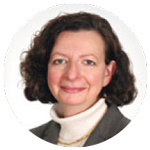 |
Kathryn Guyton
IARC
Dr. Kate Guyton is a Senior Toxicologist at the International Agency for Research on Cancer (IARC), World Health Organization in Lyon, France. Prior to joining IARC, she served as a Toxicologist in the Office of Research and Development at the US Environmental Protection Agency (2005-2014). She also has experience, as the Director of Scientific Affairs at CCS Associates (1998-2005), working with the US National Cancer Institute in cancer screening, prevention, treatment and imaging. Dr. Guyton received her BA (cum laude) from Johns Hopkins University, her PhD from the Johns Hopkins Bloomberg School of Public Health, and her postdoctoral training at the US National Institutes of Health. Dr. Guyton has been certified as a Diplomate of the American Board of Toxicology since 1998. She has authored more than 85 scientific articles in her area of expertise.
|
|
| |
 |
Jean-Lou Dorne
EFSA
Jean Lou Dorne has been working since 2006 in EFSA as a Senior Scientific Officer in the Scientific Committee and Emerging Risks unit. Previously, he spent 9 years at the University of Southampton between a PhD and 5 years of postdoctoral research UK on “human variability in kinetics and metabolism and refinement of uncertainty factors for chemical risk assessment”.
His work focuses on chemical risk assessment and toxicology. Key areas of work include:
1. the development and publication of EFSA’s chemical hazards database :OpenFoodTox and TKplate an
open source platform integrating kinetic models for humans and animals.
2. Implementation of New Approach methodologies (NAMs) in risk assessment
3. Mixture risk assessment for humans, animals and the environment
4. Training programmes in risk assessment across Europe and in other countries
Over 120 peer reviewed publications, 100 EFSA outputs 6 book chapters.
|
|
| |
 |
Anax Oliveira
LHASA Limited
Anax Oliveira has a PhD in Toxicology and has worked as a Toxicologist in the pharmaceutical, and cosmetics & personal care industries, providing safety assessment of impurities, active ingredients and finished products for several applications. He is currently leading the toxicology domain within Lhasa’s scientific team, supporting the development of in silico solutions for chemical safety assessment.
|
|
| |
 |
Christine Noiville - Chairman
CNRS - ISJPS
Christine Noiville is a Doctor of Law and Research Director at CNRS (DR1). She heads the Institute of Legal and Philosophical Sciences at the Sorbonne (CNRS 8103 joint research unit, University of Paris 1). She specialises in the links between law and scientific advances, with her main areas of research being biotechnology, risk, health, patents and the environment. President of the French High Committee for Transparency and Information on Nuclear Safety, she is and has been a member or head of numerous other bodies and networks, including the High Council for Biotechnology, the Scientific Board of the Institute of Advanced Studies for Science and Technology (IHEST), and Andra's Ethics & Society Committee. She is the author of numerous works on biotechnologies, the precautionary principle, the patenting of living organisms, GMOs, health law, etc. Her main publications include: Les biobanques, Que Sais-Je ? [Biobanks, What Do I Know?] PUF, 2009 (in collaboration with Florence Bellivier); La bioéquité. Batailles autour du partage du vivant [Bioequity: Battles over the Sharing of Living Organisms], published by Autrement in collaboration with Frontières, 2009 (in collaboration with Florence Bellivier); Contrats et Vivant [Contracts and Living Organisms], LGDJ, Paris, 2006 (in collaboration with Florence Bellivier); Nouvelles frontières de la santé, nouveaux rôles et responsabilités du médecin [New Frontiers in Health, the Doctor's New Roles and Responsibilities], Actes Dalloz, 2006; Du bon gouvernement des risques. Le droit et la question du risque acceptable [Good Risk Governance: Law and the Issue of Acceptable Risk], PUF, Paris, 2003; Ressources génétiques et droit [Genetic Resources and Law], Pédone, Paris, 1997. With F. Bellivier, she co-edits the journal Cahiers Droit, Sciences et Technologies. Christine Noiville has received the CNRS Bronze Medal, the Mattei Dogan Prize for excellence in the social sciences, and the Legion of Honour.
|
|
| |
 |
Elsa Supiot
ISJPS
Elsa Supiot is a Lecturer in private law at the University of Paris 1 Panthéon-Sorbonne. She is co-Director of the Research Centre for Science, Technology and Standards of the Institute of Legal and Philosophical Sciences at the Sorbonne (ISJPS), whose general research focus is the relationship between science, technology and legal standards. She was a member of the ANSES Committee for Ethical Standards from 2013 to 2016.
|
|
| |
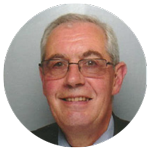 |
Didier Truchet
Paris 2
Didier Truchet is a professor in public law and professor emeritus at the University of Paris II Panthéon-Assas.
He specialises in administrative law, health law and ethics, and is Honorary President of the French Association of Health Law (AFDS). He is the author of several books, including Droit des déontologies [Law of Ethics], PUF, Thémis, 2016, in collaboration with Joël Moret-Bailly, and Droit de la santé publique [Public Health Law], Dalloz, Memento, 10th edition, 2020, in collaboration with Benoît Apollis. In January 2020, he submitted a report entitled L'EXPERTISE PUBLIQUE - Santé, environnement et alimentation [PUBLIC EXPERTISE - Health, Environment and Food] to the Minister of Higher Education, Research and Innovation.
|
|
| |
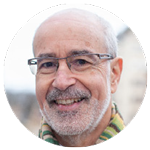 |
Denis Zmirou-Navier
HCSP/CNDAPSE
Denis Zmirou-Navier is an Honorary Professor of Public Health (Faculty of Medicine at the University of Lorraine, Nancy, 2001-2018). He was previously head of the Environmental & Occupational Health Department at the EHESP Graduate School of Public Health (Rennes and Paris, 2009-2017).
As Deputy Director of the Inserm 1085 joint research unit (Institute for Research on Health, Environment & Work – IRSET, Rennes) between 2010 and 2016, he sat on several expert bodies of the Ministries of Health and the Environment, including the Precaution & Prevention Committee and the French High Council for Public Health. From 2002 to 2005, he was Scientific Director of the French Agency for Environmental Health (AFSSE) and he has chaired the High Council of Public Health's Special Committee on "Environmental Risks" since 2009. In January 2017, he was appointed Vice-President of the French National Commission on Ethics and Alerts in Public Health and the Environment (cnDAspe), and became its President in April 2019.
He has authored or co-authored nearly 200 articles and contributions to scientific literature in environmental epidemiology and environmental health risk assessment.
|
|
| |
Break out session - Tuesday 2nd February |
| |
 |
Brice Laurent - Chairman
CSI
Brice Laurent is a researcher at Mines ParisTech’s Center for the Sociology of Innovation. Brice Laurent’s research focuses on the relationships between innovation and democracy, and uses the theoretical approaches and empirical methods of Science and Technology Studies (STS). He has published books on emerging technologies and the democratic issues they raise (Democratic Experiments. Problematizing nanotechnology and democracy in Europe and the United States, MIT Press, 2017), and on the politics of regulation (Labelling the economy. Quality and value in contemporay markets, with Alexandre Mallard (eds.), Palgrave, 2020 ; European Objects. The troubled dreams of harmonization, forthcoming at the MIT Press). Brice Laurent’s current works relate to the political dimensions of technological projects, in domains such as city experiments and natural resources.
|
|
| |
 |
Lynn Frewer
Newcastle University
Professor Lynn Frewer is chair of Food and Society at Newcastle University, (UK). Previously she was Professor of Food Safety and Consumer Behaviour at Wageningen University, (Netherlands), and Head of Consumer Science at the Institute of Food Research at Norwich, (UK). Lynn’s research interests focus on understanding food systems, developing effective risk and benefit communication strategies with consumers, understanding and measuring societal and individual responses to risks and benefits associated with food security issues throughout the supply chain, and agrifood governance and associated policy issues. Lynn also has interests in stakeholder engagement in the development of improved food security.
|
|
| |
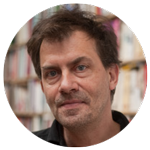 |
Dominique Cardon
Médialab/SciencesPo
Dominique Cardon is associate professor of sociology at Sciences Po and director of the médialab. Previously he was a sociologist at the Laboratory of Uses (SENSE) of Orange Labs and associate professor at the University Paris Est / LATTS. He is working on the transformation of the public space and the uses of new technologies. He published different articles on the place of new technologies in the no-global movement, alternative media and on the process of bottom-up innovations in the numeric world. His recent research focuses on the analysis of the power of algorithms in the classification of digital information. He is studying the role of statistics and computational tools in the building of new categories of representation of society. He published La démocratie Internet (Paris, Seuil/République des idées, 2010), (with Fabien Granjon), Médiactivistes, Paris, Presses de Science po, 2010, (with Antonio Casilli), Qu’est-ce que le digital labo ?, Paris, Ina Éditions, 2015, A quoi rêvent les algorithmes, Paris, Seuil, 2015 ; Chorégraphier la générosité. Le Téléthon, le don, la critique, Paris, Économica, 2016.
|
|
| |
 |
Jocelyn Raude
EHESP
Jocelyn Raude is a researcher at the Marseille Emerging Viruses Unit (Aix-Marseille University, IRD, INSERM) and lecturer at the School for Advanced Studies in Public Health (EHESP, Rennes). After defending a doctoral thesis on the "mad cow" crisis at the School for Advanced Studies in Social Sciences (EHESS, Paris) in 2006, he applied an interdisciplinary approach to the prevention of emerging infectious diseases in tropical environments during a postdoctoral fellowship at the London School of Economics (2008) and then as a researcher at the Health and Society Department of the French Institute for Research for Development (IRD) from 2016 to 2018. His main research work focuses on the response of populations to health controversies and alerts, i.e. how these phenomena influence individual and collective behaviours that have an impact on population health (diet, vector control, vaccination). Over the past ten years, he has been working more specifically on the processes of social and cognitive adaptation to the risks and uncertainties associated with infectious diseases, as well as on intervention strategies that promote the adoption of protective behaviours in our societies. He is currently the author of around 60 scientific papers published in leading international journals, and in 2018 he received the Red Cross Foundation's special research award for his work on emerging infectious diseases.
|
|
| |
 |
Pierre-Benoît Joly - Chairman
Inrae
Pierre-Benoit Joly, a STS scholar, is Directeur de recherche at the National Institute of Research for Agriculture, Food and Environment (INRAE) in France. He has been the Director of the IFRIS (French Institute for Studies of Research and Innovation in Society) and of Labex (Laboratory of Excellence) SITES from 2009 to 2014, and the founding director of LISIS (Laboratoire Interdisciplinaire Sciences Innovations Sociétés), based at Université Paris Est from 2015 to 2019. Since January 2020, he is President of the INRAE Center Occitanie-Toulouse.
His research is focused on the study of co-production of knowledge and social order. Drawing on a number of empirical studies on the interactions between science, democracy and the market, the aim is to analyze the contemporary transformations of scientific public sphere and new modes of governance of innovation and risk. P.B. Joly has published six books, coordinated four special issues of journals and published more than 120 articles or book chapters. He has lectured in various higher education organization, including the Ecole des Hautes Etudes en Sciences Sociales (EHESS) and Sciences Po.
He is a member of the French Academy of Agriculture, of the French Academy of Technology and of the council of the Science Democracy Network, based at Harvard University.
|
|
| |
 |
Stephen Hilgartner
Cornell University
Stephen Hilgartner is Professor of Science & Technology Studies at Cornell University. His research examines the social dimensions and politics of contemporary and emerging science and technology, especially in the life sciences. Hilgartner’s most recent monograph, Reordering Life: Knowledge and Control in the Genomics Revolution (MIT Press 2017), examines how quasi-legal “knowledge-control regimes” took shape during the Human Genome Project. Hilgartner also co-edited two recent collections: the Handbook of Genomics, Health and Society (Routledge 2018) and Science & Democracy: Making Knowledge and Making Power in the Biosciences and Beyond (Routledge 2015). His book Science on Stage: Expert Advice as Public Drama won the Society for Social Studies of Science’s Rachel Carson Prize. He is currently completing a project on the politics of making knowledge about risk. Since May 2020, he has been co-leading a comparative study of countries’ responses to the Covid pandemic. Hilgartner is a Fellow of the American Association for the Advancement of Science.
|
|
| |
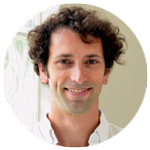 |
Ben Hurlburt
Arizona State University
J. Benjamin Hurlbut, PhD is Associate Professor in the School of Life Sciences at Arizona State University. He is trained in science and technology studies (STS) with a focus on the history of the modern biomedical and life sciences, and his research lies at the intersection of intersection of STS, bioethics and political theory. He studies the changing relationships between science, politics and law in the governance of biomedical research and innovation, examining the interplay of science and technology with democracy, religious and moral pluralism, and public reason. He is the author of Experiments in Democracy: Human Embryo Research and the Politics of Bioethics (Columbia University Press, 2017) and co-editor of Perfecting Human Futures: Transhuman Visions and Technological Imaginations, (Dordrecht: Springer, 2016), as well as numerous articles and book chapters. He holds an A.B. from Stanford University and a Ph.D. in the History of Science from Harvard University. He was a postdoctoral fellow in the program on Science, Technology and Society at the Harvard Kennedy School.
|
|
| |
 |
Charles Bodar
RIVM
Charles Bodar has a PhD-degree in environmental toxicology from Utrecht University in the Netherlands. He is now head of the department Environmental Risks of Substances and Products and acting head of the department Industrial Chemicals, both at the National Institute of Public Health and Environment (RIVM). Earlier he joined the Dutch Health Council in a secretary staff function. Main topics in his current work are chemical risk assessment and circular economy. Charles Bodar is member of several (inter) national advisory committees.
|
|
| |
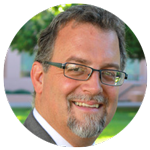 |
Clark Miller
University of Arizona
Clark A. Miller is Professor and Director of the Center for Energy & Society at Arizona State University. His research and teaching focus on the human challenges and dimensions of transformations of global energy systems, as well as on the relationships between knowledge and democracy. His books include The Weight of Light, Designing Knowledge, Science and Democracy, The Handbook of Science & Technology Studies, The Practices of Global Ethics, Changing the Atmosphere: Expert Knowledge and Environmental Governance, Arizona’s Energy Future, and Nanotechnology, the Brain, and the Future. He obtained his BS in electrical engineering from the University of Illinois and his PhD in electrical engineering from Cornell University. He has previously held research and teaching positions at Harvard, Iowa State, and Wisconsin |
|
| |
 |
Louis Laurent - Chairman
INRS
A physicist by training, Louis Laurent built his career as a researcher at the French Alternative Energies and Atomic Energy Commission (CEA). In the 2000s, he held various positions, including Director of the CEA's Saclay Institute of Matter and Radiation, then Head of the Information Technology Department at the National Research Agency (ANR). In 2011, he joined ANSES as Research and Scientific Watch Director, where he and his team organised the funding of research in the fields of environmental and occupational health, as part of the National Research Programme for Environmental and Occupational Health (PNR EST), along with monitoring and future planning activities. In 2018, he was appointed Study and Research Director of the National Research and Safety Institute (INRS).
|
|
| |
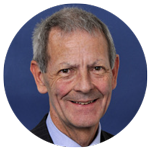 |
Walter Stahel
Product Life Institute
Dr h.c.mult. Walter R. Stahel founder-director of the Product-Life Institute (Geneva, 1983), the oldest consultancy in Europe devoted to developing sustainable strategies and policies. MA in architecture from ETH Zurich (1971). Visiting Professor, Faculty of Engineering and Physical Sciences, University of Surrey; full member of the Club of Rome; member of the Coordination Group of the European Circular Economy Stakeholder Platform of the European Parliament; member of the Scientific Advisory Board of Institute CRETUS at Universidade de Santiago de Compostela; member of the Advisory Board of CRESTING, Circular Economy, University of Hull, http://cresting.hull.ac.uk/
Present activity: Promoting the opportunities of a circular industrial economy, and of a performance economy selling goods and molecules as a service.
Past activity: 1986 to 2014, Director of Research on Risk Management of the Geneva Association, www.genevaassociation.org
Honours: 2020 Thornton Medal of the Institute of Materials, Minerals and Mining (IOM3). Degrees of Doctor honoris causa, University of Surrey (2013) and l’Université de Montréal (2016). Mitchell Prize in Houston, TX (1982, ‘The Product-Life Factor’); first prize in the German Future's Society’s competition (1978, ‘unemployment, occupation and profession’).
Corner books: ‘Jobs for Tomorrow, the Potential for substituting manpower for energy’ (1976/1981), Vantage Press N.Y.; ‘The Performance Economy’ (2010), Palgrave MacMillan; The Circular Economy – a user’s guide (2019), Routledge.
|
|
| |
 |
Michel Héry
INRS
Michel Héry has devoted most of his career to the assessment and prevention of chemical exposures (particularly carcinogenic) in the workplace. Since 2013, he has been working within the Prospective and Watch Mission of the French National Research and Safety Institute for the Prevention of Occupational Accidents and Diseases, where he reflects on tomorrow's work.
|
|
| |
Break out session - Monday 8th February |
| |
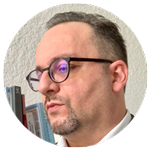 |
Mathias Girel - Chairman
ENS
Mathias Girel is a philosopher, lecturer at the École Normale Supérieure (PSL), Director of the Cavaillès Centre (Republic of Knowledge service and research unit) and Director of the Centre for archives in philosophy, history and science publishing (CAPHES). He conducts research on pragmatism and American philosophy, and on issues related to the production of doubt and instrumentalised ignorance. He edited and prefaced the French version of R. Proctor's book Golden Holocaust: Origins of the Cigarette Catastrophe and the Case for Abolition (2014), and published Science et Territoires de l'ignorance [Science and Territories of Ignorance] (Quae, December 2017). In early 2021, he is publishing L'Esprit en acte [Active Spirit] (Vrin).
|
|
| |
 |
Olivier Le Gall
President of the French Council for Scientific Integrity (CoFIS)
INRAe Research Director
AgroParisTech Agricultural Engineer, Paris 1986
Doctor of Biology, Bordeaux 1989
Habilitation to Direct Research, Bordeaux 1998
Researcher in plant virology (INRA Bordeaux & Wageningen-NL, 1986-2006)
Head of Plant Health and Environment Department, INRA (2006-2012)
Deputy Director General for Science INRA (2013-2017)
President of the French Council for Scientific Integrity (CoFIS) (since 2017) |
|
| |
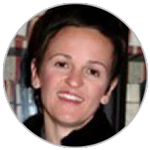 |
Stéphanie Ruphy
ENS
Stéphanie Ruphy has a PhD in Philosophy (Columbia University) and a PhD in Astrophysics (Sorbonne University). She is currently Professor of Philosophy and Contemporary Science at the Ecole Normale Supérieure (Ulm) - PSL University. She is a member of the French Council of Scientific Integrity (CoFIS).
Her current research, which relates to the general philosophy of science, focuses mainly on the role and value of science in our democracies, its forms of governance, and the debate on the unity-plurality of science. She also examines issues of scientific integrity and researchers' responsibility to society. |
|
| |
 |
Alain Kaufmann - Chairman
UNIL
Alain Kaufmann trained in biology and sociology at the University of Lausanne (UNIL), Switzerland. After a stay as a guest researcher at the École des Mines de Paris at the Center for the Sociology of Innovation, he created the Science-Society Interface and The Éprouvette, the public laboratory of UNIL. He currently directs The ColLaboratory of UNIL, a participatory, collaborative and action-research unit. His fields of research and teaching are the sociology of science and technology, the interdisciplinary approach to risk, ethics and deontology of research, public participation in research, and the social and anthropological aspects of biomedical research. He is notably a member of the Scientific Council of the ANSES and of the Board of Directors of the Alliance Sciences-Sociétés.
|
|
| |
 |
Marcel Calvez
Université Rennes 2
Marcel Calvez is a professor of sociology at the University of Rennes and researcher at the CNRS 6590 Espaces et Sociétés (ESO) joint research unit. Influenced by the British anthropologist Mary Douglas, he conducts research on the formation of health complaints relating to facilities in our living environment (mobile telephone antennas, waste treatment plants, etc.). He explores claims to popular expertise based on these fields.
|
|
| |
 |
Philippe Chamaret
Institut Ecocitoyen
A chemist by training, I began my career in 1995 at the Climate and Environmental Sciences Laboratory (LSCE) in the field of greenhouse gas measurement, where I specialised in modelling of the biogeochemical carbon cycle at the Berkeley Atmospheric Sciences Center. I have a particular interest in public commitment and citizen participation for the environment, and worked within the national association Les Ecomaires (2004-2008) on local sustainable development policies based on major risk prevention actions. I recently assumed responsibility for setting up a centre for study of the environment and the health impacts of pollution in Fos-sur-Mer (Ecocitizen Institute for Pollution Awareness, IECP), which I now lead.
|
|
| |
 |
Johanna Lees
LASSA
Johanna Lees has a doctorate in sociology. She is an associate researcher at the Norbert Elias Centre and a researcher at the Laboratory of Applied Social Sciences (LaSSA), an association laboratory. In her thesis on the "energy insecurity" category, she offered both a political analysis of this category's emergence and structuring, and an ethnography of the families concerned by the phenomenon, living in Marseille in large derelict apartment blocks and smaller ones in the city centre. Today, she works on environmental health issues in the industrial zone of Fos-sur-Mer and the Etang de Berre. Her research questions concern the sociology of ignorance and knowledge, issues related to work in the industrial zone, and participatory approaches in environmental health. She first took part in the Fos EPSEAL study as an investigator, then was scientific coordinator of the second part of the study in Saint-Martin-de-Crau, under the direction of Barbara Allen. |
|
| |
Break out session - Tuesday 9th February |
| |
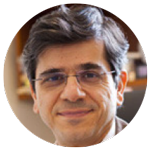 |
Robert Barouki - Chairman
Inserm
Robert Barouki attended the lycée of the French Lay Mission in Beirut, then continued his higher education at the Necker-Enfants Malades faculty of medicine and the École Normale Supérieure in Paris. He obtained a Doctorate in Pharmacology from the University of Paris-Descartes (1982), and was Director of Inserm Unit 747 "Pharmacology, Toxicology and Cell Signalling" at the Faculty of Medicine in Paris (2006-2013). He has been Director of Unit 1124 on the same themes since 2014 and Head of the Biochemistry, Metabolomics and Proteomics Department at the Necker-Enfants Malades Hospital since 2012.
Robert Barouki has been a member of the Institute of Public Health's Expert Committee since 2011, and a member of the French Health Products Safety Agency's Scientific Board since 2012.
|
|
| |
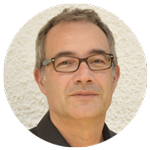 |
Angel Nadal
Miguel Hernàndez University
Angel Nadal studied chemistry (1984-1987) at the University of Alicante, and Biochemistry and Molecular Biology (1987-1989) at The Autonomous University of Madrid. He obtained his PhD at the Institute of Neuroscience, University of Alicante (1992), and trained as a postdoctoral fellow at The Physiology Group, Biomedical Science Division, King’s College London, UK (1993-1996).
Since 1997 he has been a member of the department of Physiology at Universidad Miguel Hernandez, where he became Professor of Physiology in 2009. In 1998 he started a research line to better understand the role that extranuclear actions of estrogen receptors have in the endocrine pancreas. The findings of this research line have been important to molecularly understand low dose effects triggered by Endocrine Disrupting Chemicals (EDCs) with estrogenic activities, mainly bisphenol-A. In 2006, his research group demonstrated that bisphenol-A exposure induced hyperinsulinemia and insulin resistance in adult male mice. During the last decade, they probed that bisphenol-A exposure during pregnancy predisposed male offspring as well as treated dames to type 2 diabetes mellitus. These findings have been seminal to establish the link between EDC exposure and diabetes mellitus. His interest continues in studying how environmental estrogens affect β-cell division, death and function and its implication in diabetes development. During the last decade, he has been an invited speaker at more than 50 scientific international meetings and workshops. He has been recognized by the Spanish Society of Diabetes award to the best young investigator (2004) and The Alberto Sols award to basic diabetes research (2017).
He is regularly involved in improving translation of EDC science into regulation. From March 2017 to March 2020 he was the Chair of the EDCs Advisory Group of the Endocrine Society. He continues a member of the group.
|
|
| |
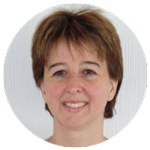 |
Ann Crabbé
University of Antwerp
Dr. Ann Crabbé is senior researcher and guest professor at the Faculty of Social Sciences of the University of Antwerp. Ann Crabbé is part of the UAntwerpen research team participating in the HBM4EU project, coordinating and advancing human biomonitoring in Europe. In that project, UAntwerpen stimulates the dialogue between science, policy and society, amongst others by organizing workshops in which policy implications of existing and new HBM results are discussed.
|
|
| |
 |
Stéphane Horel
Le Monde
Stéphane Horel works as an investigative journalist for Le Monde. She is specialized in corporate lobbying, conflict of interest and the manipulation of science. Her in-depth work on the EU regulation of endocrine disrupting chemicals was short-listed for the Albert Londres Prize (2016) and awarded the Louise Weiss prize for European journalism (2017). With Stéphane Foucart, she co-authored the "Monsanto Papers" obtaining the European Press Prize Investigative Reporting Award in 2018. She was also active in reporting for the "Implant Files" investigation coordinated by the International Consortium of Investigative Journalists (ICIJ). |
|
| |
 |
Jean-Noël Jouzel - Chairman
CNRS - CSO
Jean-Noël Jouzel works on controversies related to environmental and occupational health issues. With a perspective that combines scientific studies, sociology of public action and sociology of mobilisation, his research contributes to the current stream of work on the social construction of ignorance. His current investigations focus on pesticides and their effects on the health of exposed populations (workers and local residents), monitoring chemical risks associated with nanomaterials, and the role of hospital medicine in knowledge and recognition of occupational diseases. |
|
| |
 |
Laura Beane Freeman
NCI/NIH
Dr. Laura Beane Freeman is a Senior Investigator in the Occupational and Environmental Epidemiology Branch at the United States National Cancer Institute. She is the NCI Principal Investigator of the Agricultural Health Study, a cohort of 90,000 pesticide applicators and their spouses. She has published extensively on the health effects related to pesticides and other agricultural exposures. Dr. Beane Freeman is now launching a study of the children of the Agricultural Health Study participants to study the impact of early life pesticide exposures on health in later life. She is an elected member of the Management Group of International Epidemiology in Occupational Health (EPICOH) society, the Cancer Sub-Group Chair for AGRICOH, the international consortium of agricultural cohorts, and serves on advisory panels for multiple studies of agricultural exposures. |
|
| |
 |
François Dedieu
LISIS
François Dedieu (INRAE): Research fellow in Sociology. Laboratoire Interdisciplinaire Science Innovation société (Lisis), His researches focus on the governance of environmental risks. After a Phd in disaster management (an ordinary disaster: the storm of 27 December 1999), he currently focuses on the production of ignorance within the French and European regulation of pesticides. |
|
| |
 |
Evangelia Ntzani
Brown School of Public Health
Evangelia Ntzani, MD, PhD, is an Associate Professor of Epidemiology and Head in the Department of Hygiene and Epidemiology, University of Ioannina, School of Medicine, Greece, and Adjunct Faculty at the Center for Evidence Synthesis in Health, Brown University School of Public Health, RI, USA. She sits on the CONTAM Panel at the European Food Safety Agency (EFSA) which provides scientific advice on contaminants in the food chain and undesirable substances such as natural toxicants, mycotoxins and residues of unauthorised substances. She is or was a member of several Working Groups at EFSA on the health-related effects related to environmental exposures including aflatoxins and bisphenol A. She also participates as a methodologist in the EFSA Working Group on the use of epidemiological findings in regulatory risk assessment. She chaired the Working Group on Pesticide Toxicity Assessment set up jointly by the Science Advice for Policy by European Academies (SAPEA) and the European Scientific Advice Mechanism (SAM), European Commission. The SAPEA WG produced a report that examined the methods and procedures for assessing potential harmful effects on human health from the use of plant protection products and suggested further improvement in various areas. The report listed 26 Options, which were used to inform the European Union Group of Chief Scientific Advisors’ Scientific Opinion. Evangelia Ntzani is also the first author of the largest available systematic review on pesticide exposure and human health which includes information on more than 400 published epidemiological studies. Moreover, she led the update of this systematic review commissioned by UNEP summarizing more than 1,100 epidemiological studies and meta-analyses thereof. Dr Ntzani is author in 98 peer-reviewed scientific papers in clinical and molecular epidemiology and evidence-based medicine, and participates in grants on clinical, molecular and environmental epidemiology of complex diseases and on motivating behavior change across diverse areas. Her research interests include evidence-based medicine, clinical, molecular and environmental epidemiology, assessment of large-scale clinical and molecular information, and research methodology and bias. |
|
|
 |
|
Copyright © 2020 Ptolémée.
|
|



















































